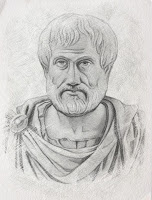Today’s blog posting is adapted from the book, Economic Personalism, which you can get free from the CESJ website, or from Amazon or Barnes and Noble.
Especially today with two centuries of people being brainwashed that all good things come from the State, it is difficult to persuade them that they should have control over their own lives. This in many cases boils down to access to money and credit . . . not for consumption (there’s never been any problem with that, as the rich and powerful want people to buy what they are selling, unless it would take power away from them), but the means to acquire and possess private property in capital, that is, to be a productive member of society.
Yes, contributing labor alone and working for others for a wage is a way of being productive and contributing to society . . . until you can no longer work (in which case you become what the Nazis called a “useless eater”) or you are replaced by a machine. That is why, as Louis O. Kelso pointed out, it is absolutely crucial that every child, woman, and man become an owner of capital that can generate and stream of income to replace labor income and — most important — vest the capital owner with control over his or her own life.
Power, as Daniel Webster noted, naturally and necessarily follows property, and if people are to become more fully human — that is, virtuous — then they must have power to do so, and that means in most cases they must have property in capital. Does that mean, however, that everyone should be completely independent of everyone else? That there is no legitimate role for the State?
Very much the contrary. As Aristotle noted twenty-five centuries ago, man is by nature a “political animal.” That does not mean collectivist or purely social. Rather, it means human beings ordinarily realize their full humanity as members of a consciously organized community, the pólis, hence, “political.” Possibly uniquely, human beings have both an individual and a social nature, acting both individually and socially in a conscious, chosen manner — politically.
What that means is man is not made for the State, but the State is made for man, and that means a limited economic role for the State, with actual human beings in charge, not the representatives of the collective. Limiting the economic power of the State is therefore essential to a system of economic personalism.
This is especially important given the temptation to which many world leaders succumb of passing laws to force people to act in ways the power élite (whether public or private) view as desirable. Further, when the State tries to take over control of everyday life, the State becomes “overwhelmed and crushed by almost infinite tasks and duties.” (Quadragesimo Anno, § 78.)
As a social tool, it is the nature of the State to be a monopoly. This consists of control over coercion as a means of enforcing goals which society has already accepted and internalized. Since monopolies ipso facto limit choice, the State should not own anything that could be owned and controlled directly and democratically by people.
In a personalist social order, God vests political sovereignty in persons who in turn delegate it to the State. Since the State is the only legitimate civil monopoly, its power must therefore be subject to checks and balances and democratic accountability.
Ultimate sovereignty of every person can be maintained only if economic power is kept directly in the hands of the people, both as an inherent right and as a safeguard and protection against their own rulers. In general, the economic power of the State should be limited to,
· Encouraging private sector growth and policing abuses,
· Ending economic monopolies and special privileges,
· Removing barriers to equal ownership opportunities,
· Protecting property, enforcing contracts, and settling disputes,
· Preventing inflation and providing a stable currency,
· Promoting democratic unions to protect worker and ownership rights,
· Protecting the environment, and
· Promoting or providing social safety nets.
Thus, as Pope Leo XIII summed up the proper way to view the role of the State, “Man precedes the State, and possesses, prior to the formation of any State, the right of providing for the substance of his body.” (Rerum Novarum, § 7)
#30#





